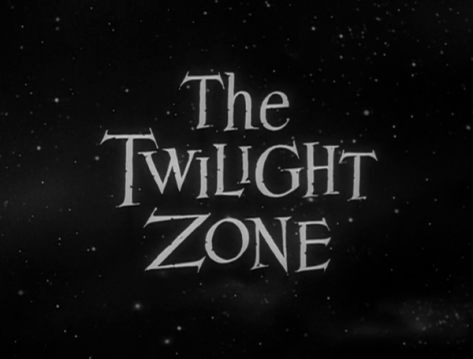When does the New Year start?
Your first instinct might be to say "January 1, of course!" But that's simply the beginning of the calendar year. Think of all the other days that kick off the next 365-year cycle. For Jews, New Year is in September. If you run a company, your fiscal year has a good chance of not matching the calendar.
And if you're a student, a football fan…or a television viewer, you know viscerally that the New Year starts right after Labor Day.

Last TV year, writer/producer Rod Serling stunned his audiences with the exciting new anthology show The Twilight Zone. Featuring half-hour episodes with science fiction/fantasy/horror themes, it was some of the best material the small screen had to offer.
It's no surprise that Twilight Zone was renewed for 1960-61, but can the new season match the expectations set by the first?
So far, the answer is… no. Let me go through the four episodes that have come out thus far, and then I'll discuss the common elements that have been their undoing.

First up is King Nine will not Return, about a World War II bomber pilot who wakes up in the wreck of his plane stranded somewhere in North Africa. The rest of his crew is gone, and his memory only gradually returns. A nice hook, but it goes nowhere. For 20 minutes, we get to watch the Captain laugh, cry, gibber, and run around. Then he wakes up in a hospital, and it turns out it was all a battle-fatigue induced nightmare. Except that his shoes are full of desert sand.

Then we have The Man in the Bottle, a prosaic little genie-grants-wishes story. This episode is particularly maddening as the plot relies on the utter stupidity of the wishers (the genie, despite his rather sinister demeanor, is quite generous as genies go). Granted four wishes, a near-bankrupt antique storekeeper and his wife wish: 1) That their display case glass be mended, 2) That they get a million dollars, 3) That they be unimpeachable rulers of a contemporary nation, 4) and (when #3 doesn't work out), that they be restored to their former state.
The catch to their windfall of cash is the Internal Revenue Service, which claims most of the income. Since (in a nice bit) the generous storekeepers give away about $60,000 right away, after taxes they are left with just $5. As for the gratification of wish #3, you just knew the storekeeper was going to end up as Adolf Hitler on April 30, 1945. And after #4, the storekeeper breaks the display case repaired by wish #1. A complete reset.
Except, of course, that his neighborhood is $60,000 richer! This isn't touched upon, and it is a shame. I would have liked to see the storekeepers' community, now aflush with funds and overflowing with gratitude, helping to make their shop a success.
Or, you know, for the storekeepers to make better wishes in the first place.

Nervous Man in a Four Dollar Room
A two-bit hood spends the episode in a dingy hotel room literally wrestling with himself after being given his first murder contract. In the end, his suppressed nobler self takes control and turns away from a life of crime.
And is subsequently gunned down by the mob. Ah, my mistake. That didn't happen, or at least, it was not shown in the episode. It's a logical conclusion, however.
I actually probably enjoyed this episode the most, but that's not to say it was good; merely that it was not horrible. Joe Mantell turned in a pretty good performance as the pathetic "Jackie."

Finally, we have A Thing about Machines, which my daughter and I were able to preview before it airs this Friday (in three days). A martinet of a writer in a palatial estate finds fault with all of his mechanical devices: his television, his radio, his typewriter, his phone. So they all plot their revenge. The typewriter composes an eviction notice (somehow, the thing magically replenishes its paper store). The television and phone harangue him. His electric shaver slithers after him like a snake. Ultimately, his car chases him into a swimming pool, where he dies of a heart attack. The acting, cinematography and music are fine. Shame about the story.
My daughter told me recently, "Last season, Twilight Zone was creepy with a twist. Now it's just creepy." She's right. Each story starts with a premise and then goes nowhere, developmentally speaking. We're back to that padded middle, crazy fellow screaming pattern that dogged the worst episodes of the first season.
What's the common element? Rod Serling wrote them all.

In fact, Rod Serling, who previously only showed up in the previews for next episodes now walks onto the set at the beginning of every story. I don't mind when Hitchcock does it, but it rather breaks the flow in this show. As for the quality of writing, the stories Serling provided last season were among the weaker entries, and he's no better this season. I have a great deal of admiration for Serling as a producer and a raconteur, but he's got to let other folks contribute some screenplays.
Perhaps I'm being overly harsh. It may well be that Serling is writing under strict budgetary guidelines, which limits his sets and number of actors (not to mention hiring out guest writers). Between Serling and his restrictions, I don't know that the show will survive the year.
On the other hand, next week's episode is by Charles Beaumont. That bodes well.
See you in two days with this month's Fantasy and Science Fiction!







































